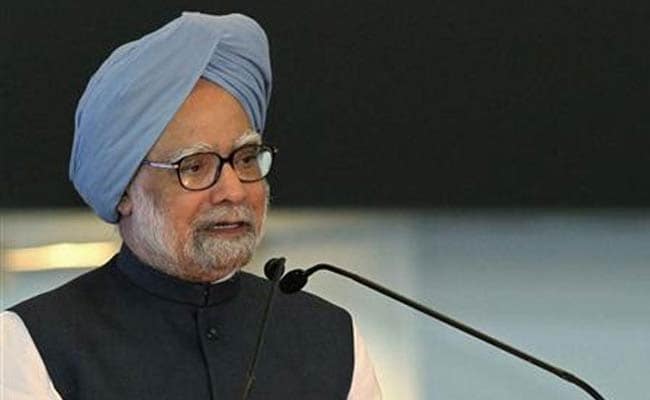
Ex-Prime Minister Manmohan Singh asked the Congress to seek changes in GST
New Delhi:
Four Goods and Tax, or GST related bills, sailed through the Rajya Sabha or upper house of Parliament without amendments today, with the largest party - Congress - voting for the bills and against changes sought by other opposition parties. Just before the House voted, former Prime Minister Manmohan Singh asked his party not to seek changes.
This was an important legislation and there should be no amendments moved to "maintain consensus and federal agreement," Dr Singh said, ensuring the smooth passage despite the government being in a minority in the house.
"It is a historic bill. It is making a new beginning... It is a consensus bill, so I am very happy," Dr Singh told NDTV after the bills were passed, adding, "It will have some pitfalls but we learn as we go along."
It was the Congress-led UPA government under Dr Singh that initiated mega tax reform GST, but could not push in the face of opposition from the BJP and then Gujarat Chief Minister Narendra Modi. Today, Dr Manmohan Singh would only say, "let bygones be bygones," when asked if he was disappointed that his government had not been able to launch GST, which subsumes all indirect taxes in and will turn India into a unified market.
"We should not assume that there will be no difficulties. There must be a constructive spirit. There must be cooperation between the federal government and the state government to resolve those outstanding issues," said Dr Singh. The Congress has underscored that despite today's support to the GST bills in the spirit of consensus, objections to certain provisions remain. The Congress wanted parliament to have a final say on the recommendations of the GST council and not notify taxes by an executive order leaving parliament out of its purview.
In the Rajya Sabha, however the party decided to support the government, sources said, because it did not want to be seen as a spoke in the development story, particularly since it authored GST. Leaders also felt that since the bills were presented as Money Bills, the Rajya Sabha would have no say and it could only make token objections.
Any changes approved by the Rajya Sabha in Money Bills are not been binding on the Lok Sabha, which can choose to accept or reject them.
Replying to the debate in the upper house, Finance Minister Arun Jaitley said successive governments have contributed towards GST and no one person can take credit for it.
"This Bill, I have no hesitation in conceding, is a collective property," he said.
This was an important legislation and there should be no amendments moved to "maintain consensus and federal agreement," Dr Singh said, ensuring the smooth passage despite the government being in a minority in the house.
"It is a historic bill. It is making a new beginning... It is a consensus bill, so I am very happy," Dr Singh told NDTV after the bills were passed, adding, "It will have some pitfalls but we learn as we go along."
It was the Congress-led UPA government under Dr Singh that initiated mega tax reform GST, but could not push in the face of opposition from the BJP and then Gujarat Chief Minister Narendra Modi. Today, Dr Manmohan Singh would only say, "let bygones be bygones," when asked if he was disappointed that his government had not been able to launch GST, which subsumes all indirect taxes in and will turn India into a unified market.
"We should not assume that there will be no difficulties. There must be a constructive spirit. There must be cooperation between the federal government and the state government to resolve those outstanding issues," said Dr Singh. The Congress has underscored that despite today's support to the GST bills in the spirit of consensus, objections to certain provisions remain. The Congress wanted parliament to have a final say on the recommendations of the GST council and not notify taxes by an executive order leaving parliament out of its purview.
In the Rajya Sabha, however the party decided to support the government, sources said, because it did not want to be seen as a spoke in the development story, particularly since it authored GST. Leaders also felt that since the bills were presented as Money Bills, the Rajya Sabha would have no say and it could only make token objections.
Any changes approved by the Rajya Sabha in Money Bills are not been binding on the Lok Sabha, which can choose to accept or reject them.
Replying to the debate in the upper house, Finance Minister Arun Jaitley said successive governments have contributed towards GST and no one person can take credit for it.
"This Bill, I have no hesitation in conceding, is a collective property," he said.
Track Latest News Live on NDTV.com and get news updates from India and around the world

